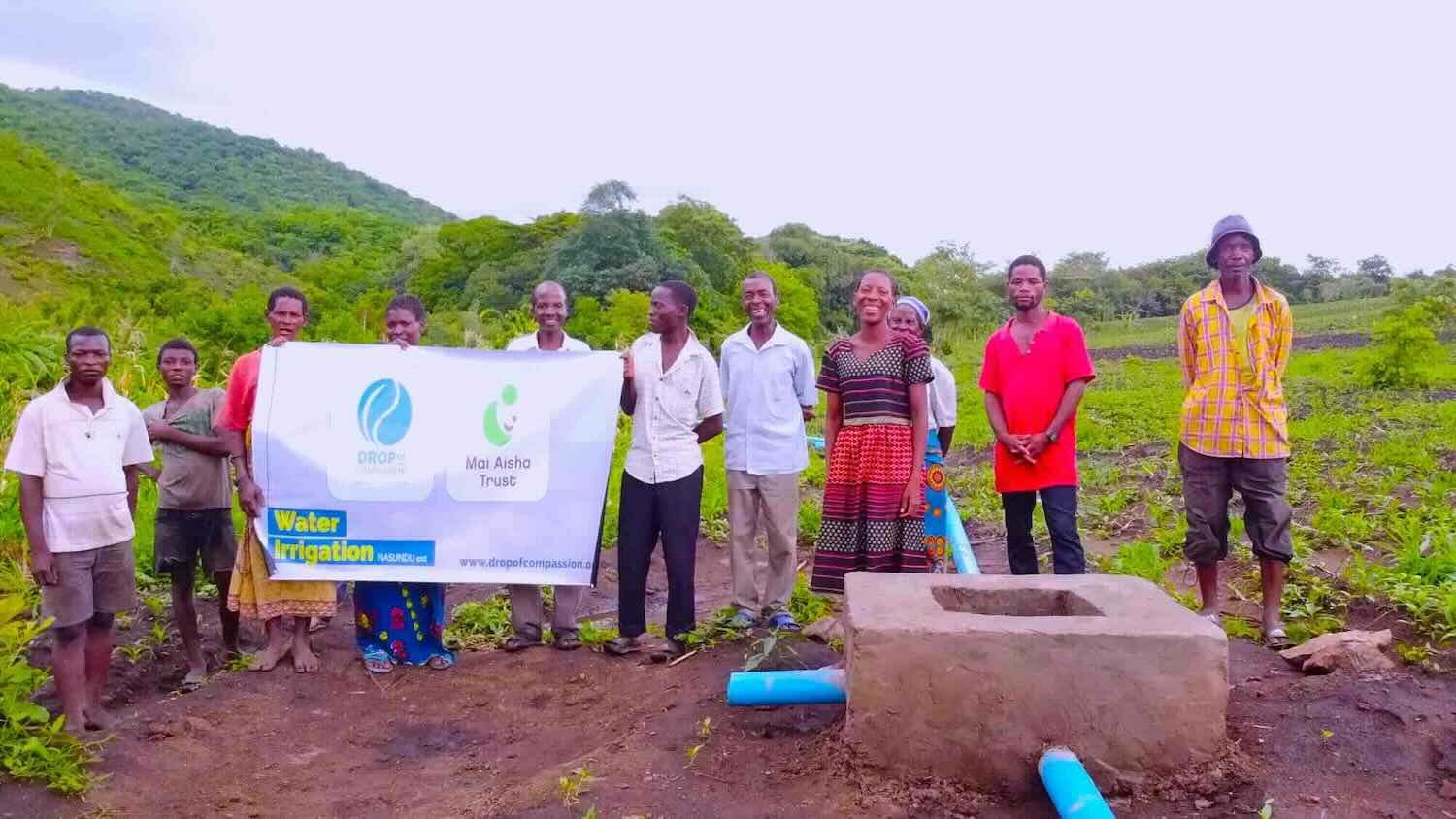In the heart of Malawi, a groundbreaking irrigation project is revolutionising the lives of rural communities. By providing a reliable source of water, the scheme is enabling farmers to cultivate their land effectively, leading to improved crop yields and enhanced food security.
Key Takeaways
- The irrigation scheme has improved crop yields and food security.
- Local farmers are benefiting from increased agricultural productivity.
- The project is empowering rural communities to manage their livelihoods.
- The initiative is having a positive impact on the overall wellbeing of the community.
The Agricultural Challenges in Rural Malawi
Malawi’s rural communities struggle with agricultural productivity due to various environmental factors. The region’s reliance on rainfed agriculture makes it highly susceptible to climate related shocks.
What was the situation before the Project?
Farmers depended entirely on rain. When rains failed, crops failed. Communities lacked reliable water; women and children spent hours daily fetching from distant wells or boreholes. Food shortages, missed school, and no extra income were the norm.
Impact on Food Security and Livelihoods
The agricultural challenges in rural Malawi have severe implications for food security and livelihoods. With decreased crop yields, communities struggle to meet their nutritional needs, leading to increased poverty and vulnerability.
“The lack of reliable irrigation systems has made our lives very difficult. We often go to bed with empty stomachs,” said a local farmer.

Martha’s Story: Struggling with Crop Watering
Martha, a smallholder farmer, recalls the days when she had to wake up at dawn to fetch water from a distant borehole, just to water her crops. “It was a daily struggle,” she says. “Sometimes, by the time I got back, the sun would be too hot, and the water would be too little for my crops.”
“The water scarcity was not just about farming; it affected our entire livelihood.”
She proudly owns new livestock and has improved her housing conditions. The irrigation scheme enabled her to cultivate her land effectively, leading to increased income and a better standard of living. Her story is a testament to the project’s success.
A key aspect of the project’s success was the community engagement approach. By involving local farmers in the planning and implementation phases, the project ensured that the solutions were tailored to their specific needs.
Florida’s Experience: The Path to Assistance
Florida, one of the key beneficiaries, has been vocal about her appreciation.
“The irrigation scheme has changed our lives,” she says.
The ability to grow crops throughout the year has not only improved our food security but also enhanced our livelihoods. Florida’s story is a testament to the difference that compassionate giving can make in the lives of rural communities.
Her story is a testament to the impact of Drop of Compassion’s efforts. With the help of local agricultural advisors, Florida was able to access training and resources that significantly improved her farming practices.
| Support Mechanism | Benefit |
| Local Agricultural Advisors | Improved Farming Practices |
| Drop of Compassion support | Enhanced Resource Allocation |
Transformative Impact: Lives Changed Through Irrigation
The irrigation scheme in Malawi has revolutionised the way local communities farm, leading to a notable improvement in their overall well being. This transformation is multifaceted, impacting various aspects of their lives.
- Economic Improvements: The scheme has led to significant economic benefits for the local farmers. Increased crop yields have resulted in higher incomes, improving their financial stability.
- Increased Crop Yields and Income: With a reliable water supply, farmers can now grow crops throughout the year, leading to increased yields and, consequently, higher incomes.
- Investment in Education and Housing: The improved financial situation has enabled families to invest in education and better housing, enhancing their quality of life.
- Food Security Enhancements: The irrigation scheme has also improved food security in the region. With the ability to grow a variety of crops, families now have access to a more diverse and nutritious diet.
- Livestock Acquisition and Wealth Building: Furthermore, the increased income has allowed farmers to invest in livestock, building their wealth and further securing their livelihoods.
The overall impact of the Malawi irrigation scheme has been profoundly positive, transforming the lives of local communities through economic improvements, enhanced food security, and wealth building opportunities.

Messages of Gratitude to Drop of Compassion Donors
In Malawi, the irrigation scheme has brought about a transformative change, thanks to the generous support of Drop of Compassion donors. The beneficiaries of this project have expressed their heartfelt gratitude through various means, showcasing the profound impact of the donors’ contributions.
The Ripple Effect of Compassionate Giving
The support from Drop of Compassion donors has had a ripple effect, benefiting not just individual farmers but the entire community.
The beneficiaries are now able to support each other, creating a sustainable cycle of prosperity. This ripple effect underscores the value of the donors’ contributions, demonstrating how their compassion has fostered a thriving community in Malawi.
Conclusion: Sustainable Development Through Irrigation in Malawi
The irrigation scheme implemented in Malawi has brought about a transformative change in the lives of the local communities, thanks to the support of Drop of Compassion.
This project has not only improved food security and livelihoods but has also contributed to the overall sustainable development of the region.
The success of this initiative is a testament to the positive impact that can be achieved through collaborative efforts between organisations and local communities. As the community continues to thrive, the irrigation scheme stands as a model for sustainable agricultural development in the region.

